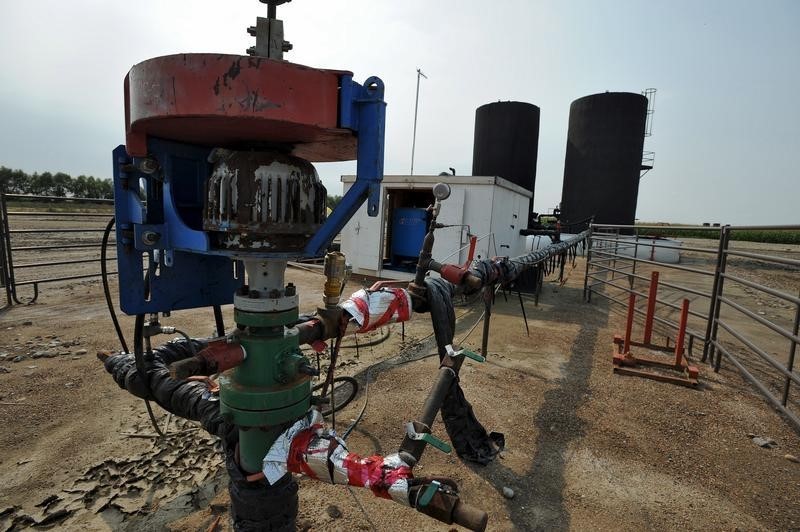By Henning Gloystein
SINGAPORE (Reuters) - Crude oil prices remained weak on Monday as a slowing demand outlook implied oversupply will remain in place for months, prompting speculators to cut their bets on rising prices.
Front-month U.S. crude futures (CLc1) were trading at $44.69 per barrel at 0557 GMT, 9 cents above their last close but more than 12 percent below their October peak.
International benchmark Brent (LCOc1) was 8 cents higher at $48.07 a barrel, but over 10 percent below this month's high.
Goldman Sachs (N:GS) said that oil prices could drop "sharply lower" as refined product storage sites come close to filling, stoking a glut that has already seen crude prices fall by more than half since June 2014.
ANZ said it expected prices to remain low for the rest of this year, due to slowing demand and as speculators were cutting bets on higher prices.
On the demand side, Energy Aspects said that it "forecast a sharp slowdown in global oil demand across Q4 15 at 0.8 million barrels per day, which marks the slowest pace of growth in five quarters."
Energy Aspects said ongoing oversupply in crude oil was starting to spill into the market for refined products, with a product stock-build of 0.6 million barrels per day seen in the third quarter.
Rising inventories as well as a mild winter expected for Europe and North America as a result of an El Nino weather event would likely lead to reduced refinery production and lower use of crude oil by refiners, it said.
Global oil markets were "still some way from rebalancing", the research agency added.
Due to the low oil prices, investment in the sector in 2016 will likely decline further after sliding this year by more than a fifth, Fatih Birol, the executive director of the International Energy Agency (IEA), said on Monday.
"If it comes true, this will be the first time in two decades we will see oil investments declining for two consecutive years and may be an indication for future oil markets," he said at the Singapore International Energy Week.
Swift Worldwide Resources estimates that more than 200,000 jobs in the oil and gas industry have been cut worldwide since prices collapsed last year.

Yet not all analysts are entirely bearish in their outlook. "We see support for underlying demand growth, and we view any product-related oversupply as temporary. Global refining margins are off highs, but the details are more positive," Morgan Stanley (N:MS) said.